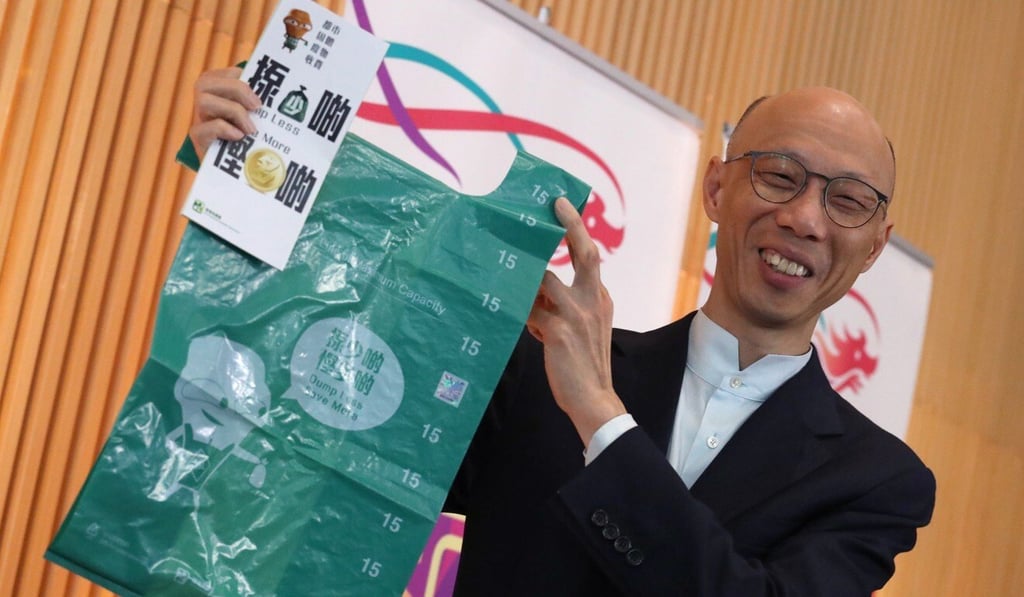Explainer | Hong Kong’s waste problem: what is the new charging scheme and how can it clean up the issue?
- Average household in city could pay between HK$33 and HK$55 each month to throw out trash using one of 11 types of designated rubbish bags
- Commercial and industrial buildings using private collection services to pay landfill ‘gate fee’ based on weight of rubbish produced

Hong Kong has been lagging more than two decades behind its neighbours in implementing a waste-charging scheme long touted as a leading policy to reduce rubbish and increase recycling rates.
The Post looks at the specifics of the scheme, the ups and downs of passing the bill, and how it can help Hong Kong tackle its massive waste problem.

How will waste charging work?
Under amendments to the Waste Disposal Ordinance and resulting charges for municipal solid waste, the average Hong Kong household is likely to end up paying HK$33 (US$4.20) to HK$55 each month to throw out trash.
Those living in residential buildings and village houses, and operators of street-level shops that use government refuse collection services, will be required to buy one of 11 types of rubbish bags of varying sizes that are produced and sold by the government.